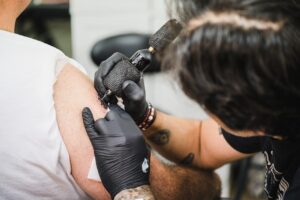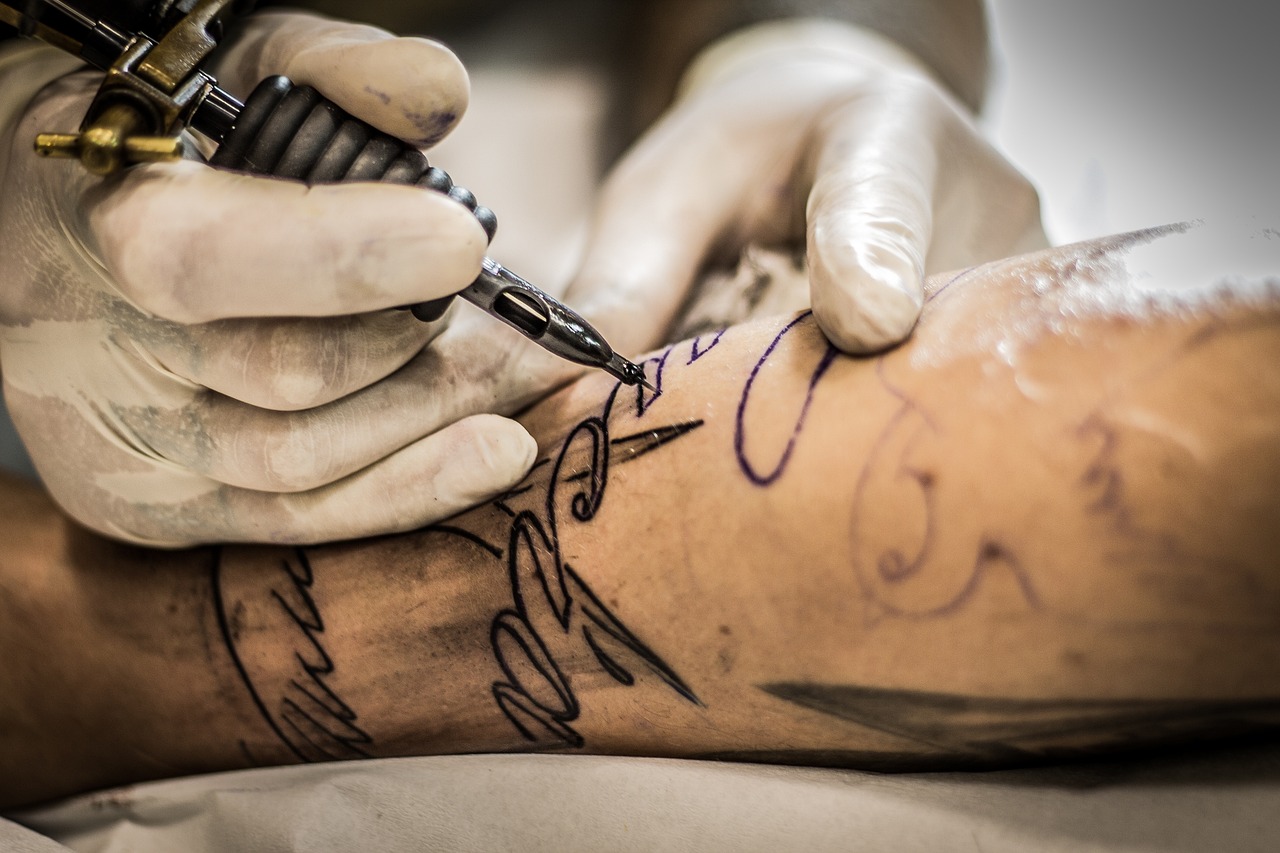Tattoos have long served as a form of self-expression, storytelling, and even rebellion. In recent years, tattoos that symbolize mental health awareness, personal struggles, and journeys of healing have gained significant popularity. These tattoos are more than mere body art; they are powerful, permanent reminders of strength, resilience, and self-acceptance.
The Intersection of Mental Health and Body Art
Mental health tattoos often emerge from deeply personal experiences. For many, dealing with mental health challenges such as depression, anxiety, PTSD, or eating disorders can feel isolating. Tattoos become a medium to externalize these struggles and victories, turning invisible wounds into visible symbols of resilience.

These tattoos are not just for the individuals wearing them; they also spark conversations and promote awareness. In a society where mental health issues are still stigmatized, such tattoos act as icebreakers, encouraging openness and understanding.
Why Choose a Mental Health Tattoo?
The decision to get a mental health tattoo is deeply personal, driven by a variety of reasons:
- Symbolizing Recovery and Growth: Many people choose tattoos as markers of their recovery journey, celebrating the progress they’ve made or reminding themselves of their ability to overcome adversity.
- Raising Awareness: Mental health tattoos can serve as advocacy tools, encouraging discussions about mental health and reminding others that they are not alone in their struggles.
- Coping Mechanism: The process of choosing, designing, and getting a tattoo can itself be therapeutic. It offers a sense of control and permanence in a world that often feels chaotic.
- A Daily Reminder: For some, tattoos provide daily affirmations or grounding symbols that help them stay focused on their mental health goals and remind them of their worth.
Popular Mental Health Tattoo Designs and Their Meanings
The designs chosen for mental health tattoos are as varied as the individuals who wear them. Here are some of the most popular symbols and their meanings:
Semicolon (;)
The semicolon has become a universal symbol of mental health awareness and suicide prevention. It represents a pause rather than an end, symbolizing the choice to continue one’s story despite challenges. This symbol gained popularity through the Semicolon Project, which aims to raise awareness about mental health issues.
Lotus Flower
The lotus flower is a powerful symbol of resilience and transformation. Growing from muddy waters, it blooms into a beautiful flower, making it a perfect metaphor for overcoming struggles and finding inner peace.
Butterflies
Butterflies symbolize transformation, hope, and renewal. For individuals dealing with mental health challenges, a butterfly tattoo can represent their metamorphosis from a dark place into a brighter, more hopeful future.
Infinity Symbol
Often combined with words like “hope,” “love,” or “strength,” the infinity symbol represents endless possibilities, resilience, and an enduring commitment to one’s mental health journey.
Words and Phrases
Inspiring quotes, single words, or meaningful phrases are popular choices. Examples include “breathe,” “still I rise,” “hope,” and “you are enough.” These tattoos serve as mantras, offering encouragement during tough times.
Heartbeat Line
A simple yet profound design, the heartbeat line signifies life, perseverance, and the will to keep going, even during moments of despair.
Anchors
An anchor symbolizes stability and grounding. For those who feel lost or adrift, it serves as a reminder to stay anchored, no matter how rough the waters.
Personal Stories Behind Mental Health Tattoos
Anna’s Semicolon Tattoo
Anna, a 28-year-old graphic designer, struggled with depression and suicidal thoughts in her early twenties. After attending therapy and finding support in friends and family, she decided to get a semicolon tattoo on her wrist. “It’s a daily reminder that my story isn’t over,” she says. “Every time I see it, I feel empowered to keep going.”
James’ Anchor Tattoo
James, a war veteran coping with PTSD, chose an anchor tattoo on his forearm. “It reminds me of the strength I have inside me to weather any storm,” he explains. “It also helps me remember the people who ground me and keep me steady.”
Sophia’s Lotus Flower
For Sophia, recovering from an eating disorder was a long and painful journey. She got a lotus tattoo on her back to symbolize her transformation. “I’ve come a long way, and this tattoo is a celebration of my growth,” she shares.
The Role of Tattoos in Destigmatizing Mental Health
Mental health tattoos are not just personal; they have a broader social impact. By displaying their tattoos, individuals contribute to the ongoing fight against the stigma surrounding mental health issues. These symbols serve as conversation starters, inviting others to share their own experiences and fostering a sense of community.
Social media platforms have amplified this impact, with hashtags like #MentalHealthTattoos and #SemicolonTattoo connecting people from all walks of life. Online communities provide a safe space for individuals to share their stories and find support, further normalizing discussions around mental health.
Considerations Before Getting a Mental Health Tattoo
While mental health tattoos can be meaningful and empowering, it’s essential to approach the decision thoughtfully:
- Reflect on the Meaning: Ensure that the design resonates deeply with your personal experiences and values. A tattoo is a lifelong commitment, so take your time to choose something significant.
- Choose a Reputable Artist: Research tattoo artists in your area, particularly those experienced with the style of tattoo you want. A skilled artist can help bring your vision to life safely and beautifully.
- Placement Matters: Decide where you want the tattoo and consider factors like visibility, pain tolerance, and professional settings.
- Emotional Readiness: Ensure you’re in a stable mental state before getting a tattoo. The process can be emotional, especially if the tattoo is tied to a difficult experience.
- Cultural Sensitivity: Be mindful of symbols or designs that might have cultural or religious significance. Ensure you understand and respect the origins of the imagery you choose.
Mental Health Tattoos: A Celebration of Resilience
Mental health tattoos are more than ink on skin—they are declarations of strength, markers of recovery, and symbols of hope. They honor personal journeys while contributing to a broader cultural shift toward mental health awareness and acceptance.
Whether it’s a semicolon, a lotus flower, or a meaningful phrase, these tattoos tell stories of pain, perseverance, and triumph. For those who choose to wear their hearts—and their struggles—on their skin, mental health tattoos are a powerful reminder that healing is possible, and that they are never alone in their journey.
As society continues to embrace open discussions about mental health tattoos will undoubtedly remain a profound and permanent way for individuals to express their experiences, foster connections, and inspire others.



